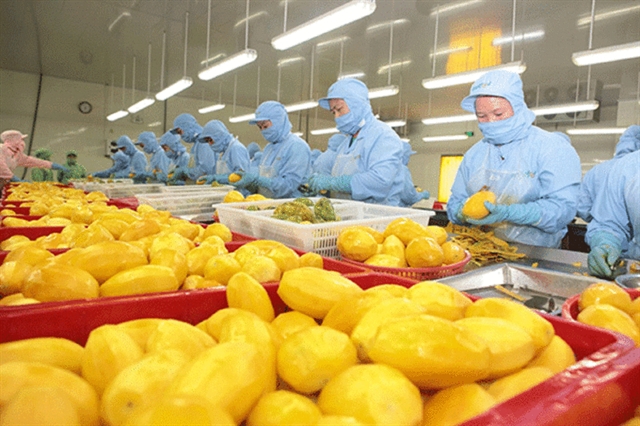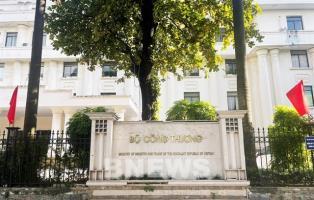Nearly 4,000 codes of Việt Nam'sagricultural products approved to export to China
China is currently one of Việt Nam's largest and most potential trading partners, and is also a key agricultural import market.

HÀ NỘI — The General Administration of Customs of China (GACC) has so far approved 3,938 agricultural and food product codes for Vietnamese enterprises to be allowed to export to this market, according to the Vietnamese Ministry of Agriculture and Environment.
Of the total, 250 codes were licensed in the first 10 months of this year.
China is currently one of Việt Nam's largest and most potential trading partners, and is also a key agricultural import market.
As China has increasingly imposed stringent requirements on imported agricultural and food products, many Vietnamese cooperatives and enterprises have proactively standardised their production processes, and invested in raw material areas and deep processing to increase competitiveness and maintain sustainable exports.
Recently, on October 14, GACC issued the revised Administrative Provisions on the Customs Registration of Overseas Manufacturers of Imported Food in the People's Republic of China (Decree No. 280), which will take effect from June 1, 2026, replacing Decree No. 248 which has been applied since 2022. The new policy is considered an important adjustment in the food import management policy, directly impacting all businesses exporting agricultural products and food to the country, including Việt Nam.
Dr. Ngô Xuân Nam, deputy director of the Vietnam SPS Office, said that the group directly affected by Decree 280 is the enterprises that produce, process, and preserve food for export to China. They include factories processing agricultural products, seafood, meat products, milk, starch, juices, beverages and dried agricultural products.
Nam advised the enterprises to review the registration code on the GACC’s CIFER portal, especially when there is a change in location, legal entity, or domestic licence, because according to the new regulations, if the change affects the food safety management system, the registration code will be immediately revoked.
Decree 280 also clarifies the scope of application to storage facilities, cold storage, or transit warehouses abroad, which are required to register if they participate in the chain of preserving processed products before exporting to the Chinese market.
According to Nam, Decree 280 is a step forward, not a barrier. If Việt Nam maintains an effective, transparent food safety control system and has an early warning mechanism, the risk will be assessed at a low level, and Vietnamese enterprises will be ranked in the priority group.
To take advantage of the opportunities from Decree 280, Nam suggested that management agencies need to continue to synchronise data on growing areas, production areas, processing facilities and traceability systems, which is an important basis for China and other partners to assess Việt Nam's management capacity and transparency. — BIZHUB/VNS
- Tags
- agricultural exports



